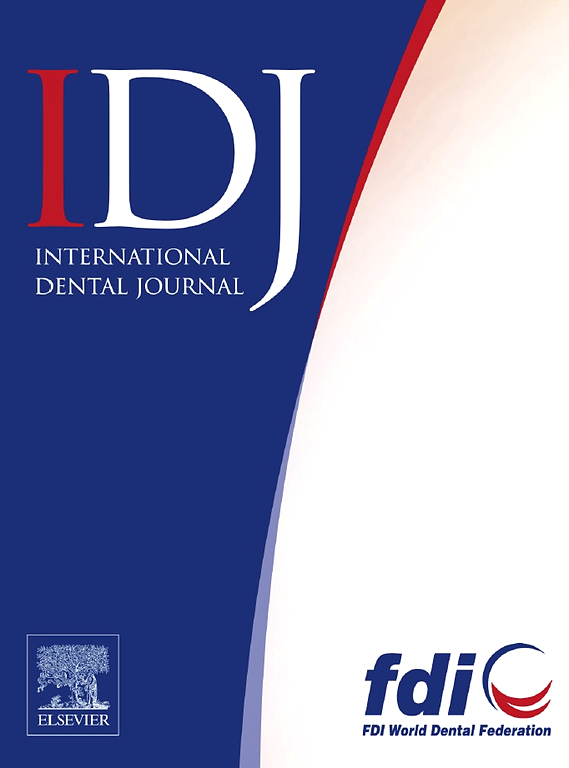培训具有社会意识的牙科医生:加拿大安大略省牙科课程中社区服务学习的发展与整合。
IF 3.2
3区 医学
Q1 DENTISTRY, ORAL SURGERY & MEDICINE
引用次数: 0
摘要
前言和目的:需要以社区为中心的护理教育模式,以解决公平应得人群的高牙科治疗需求,重点是以人为中心的护理和以学习者为中心的教育。加拿大舒利希医学和牙科学院制定了社区服务学习(CSL)方案,并将其纳入本科牙科课程,以培训本科牙科学习者,其课程反映了当地值得平等的社区和全球人口复杂和不断变化的口腔健康需求。方法:利用Yoder的服务学习框架和Lave和Wenger的情境学习框架开发CSL项目。与安大略和东非的伙伴组织及其服务使用者举行了社区协商,使他们参与制定和执行社区服务方案。学习者的反馈是通过一项匿名自我报告调查来衡量他们对新实施的CSL课程的总体体验和看法。结果:安大略省伦敦的七个社区站点被选中进行第三年的强制性实习。八个学习者轮流在每个地点学习。所有四年级的学生都在安大略省伍德斯托克市的一个社区轮流学习。总体而言,所有参与调查的学习者都对CSL课程给予了积极的反馈,并希望继续强调CSL课程。学习者对该项目的看法显示出三个主要优势:“社区外展和获得护理的重要性”、“教育和专业发展”以及“加强社区关系”。感知到的改善领域包括患者的“可及性和沟通”以及“增强CSL项目的暴露和机会”。结论:CSL项目为学习者提供了积极的体验式学习机会,同时在当地和全球范围内解决了应得公平的社区成员的口腔健康需求。临床相关性:本案例研究为开发体验式学习计划提供了一种实用的、基于证据的方法,该计划培训牙科学习者克服与获得口腔健康相关的挑战,并解决应得到公平待遇的社区未满足的口腔健康需求。本文章由计算机程序翻译,如有差异,请以英文原文为准。
Training Socially-Conscious Dentists: Development and Integration of Community Service-Learning in Dental Curricula in Ontario, Canada
Introduction and aims
Commuity-centred education models of care are needed to address the high dental treatment needs of equity-deserving populations with a focus on person-centred care and learner-centred education. The Community Service-Learning (CSL) programme was developed and integrated into the undergraduate dental curriculum at the Schulich School of Medicine and Dentistry in Canada to train undergraduate dental learners with a curriculum reflective of the complex and evolving oral health needs of local equity-deserving communities and global populations.
Methods
The CSL programme was developed utilizing Yoder's framework for service-learning and Lave and Wenger's framework for situated learning. Community consultations were held with partner organizations and their service users in Ontario and East Africa to engage them in the development and implimentation of the CSL programme. Learners' feedback was sought through an anonymous self-reported survey to gauge their overall experiences and perceptions about the newly implemented CSL programme.
Results
Seven community sites were selected in London, Ontario for the third-year mandatory placements. Eight learners rotated through each site. All fourth-year learners rotated through one community site in Woodstock, Ontario. Overall, the CSL programme received positive feedback from all the learners who participated in the survey with an emphasized desire for the CSL program to continue. Three major strengths emerged from the learners’ perceptions of the programme: ‘the importance of community outreach and access to care’, ‘educational and professional development’, and ‘strengthening of community relationships’. Perceived areas for improvement included: ‘patient accessibility and communication’ and, ‘enhanced exposure and opportunities for the CSL programme’.
Conclusion
The CSL programme provided positive experiential learning opportunities for learners while addressing the oral health needs of equity-deserving community members in local and global contexts.
Clinical relevance
This case study provides a practical and evidence-based approach in developing an experiential learning programme that trains dental learners to overcome challenges associated with oral health access and to address the unmet oral health needs of equity-deserving communities.
求助全文
通过发布文献求助,成功后即可免费获取论文全文。
去求助
来源期刊

International dental journal
医学-牙科与口腔外科
CiteScore
4.80
自引率
6.10%
发文量
159
审稿时长
63 days
期刊介绍:
The International Dental Journal features peer-reviewed, scientific articles relevant to international oral health issues, as well as practical, informative articles aimed at clinicians.
 求助内容:
求助内容: 应助结果提醒方式:
应助结果提醒方式:


